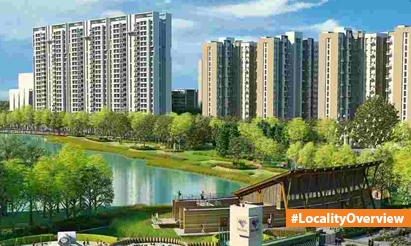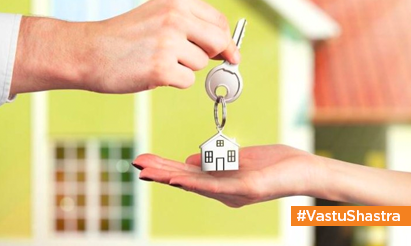What is RWA in Society? Full Form, Rules, and Regulations of RWA
A Resident Welfare Association (RWA) is an important body within residential communities that governs day-to-day operations, ensuring a smooth and harmonious living environment. RWAs exist to represent residents, resolve issues, and manage resources.
In this blog, we’ll discuss the resident welfare association rules and regulations and how these associations operate within a society.
What is a Resident Welfare Association (RWA)?
The RWA full form stands for “Resident Welfare Association.” It is a non-profit entity formed by the residents of a particular residential area or society. RWAs aim to manage and maintain communal spaces, address concerns, and ensure the overall well-being of the community. Typically, an RWA comprises elected members who are residents of the housing society or area it represents.
RWAs are common in gated communities, apartment complexes, and residential colonies. These associations serve as the primary link between the residents and external agencies such as municipal bodies or service providers.
Essential Functions of an RWA
Some of the key functions include:
- Maintenance of Common Areas: The RWA is responsible for the upkeep of gardens, parks, clubhouses, and other shared amenities.
- Collecting Maintenance Charges: The association collects fees from residents to cover common expenses, such as electricity for streetlights, water supply, and cleaning services.
- Organising Events and Cultural Activities: RWAs can organise festivals, community activities, and recreational events to foster a sense of unity among residents.
- Resolving Conflicts: An RWA mediates disputes between residents, ensuring a peaceful living environment.
- Liaison with Municipal Bodies: The RWA works closely with local civic bodies to ensure residents’ needs, like water supply, garbage disposal, and sanitation, are met.

Residents Welfare Association (RWA) Rules and Regulations
Each resident welfare association’s rules and regulations differ slightly based on local governing laws and the specific needs of the community it represents. However, some common RWA rules and regulations are:
- Election of Office Bearers: RWAs typically hold annual elections where residents vote for representatives such as the president, secretary, and treasurer. These office bearers are tasked with carrying out the daily functions of the RWA.
- General Body Meetings: RWAs are required to hold periodic meetings, often quarterly or annually, to discuss community issues, approve budgets, and address any concerns raised by residents.
- Maintenance Collection: The rules around maintenance collection, including the amounts charged and the frequency of collection, are determined by the RWA and agreed upon by the residents.
- Service Providers: RWAs may establish guidelines for service providers such as security personnel, housekeeping staff, and gardeners, ensuring their conduct aligns with community standards.
- Grievance Redressal: RWAs often set up formal mechanisms for addressing grievances. This ensures residents can voice concerns related to security, cleanliness, or neighbour disputes, and expect a timely resolution.
- Security Protocols: RWAs typically establish security guidelines for the community. This may include appointing security personnel, installing CCTV cameras, and controlling visitor entry.
What is the Role of RWA in Society?
RWAs play an integral role in creating a well-organized and harmonious living environment within residential societies. Some key roles include:
- Management of Resources: RWAs manage shared resources like water, electricity, and maintenance of infrastructure, ensuring these are used effectively and residents are not inconvenienced.
- Policy Implementation: RWAs are responsible for implementing policies or guidelines agreed upon during general body meetings or mandated by local laws.
- Financial Management: RWAs are tasked with managing society funds, ensuring transparency in how maintenance charges are used, and providing detailed accounts to the residents.
- Dispute Resolution: An RWA acts as a mediator in resolving conflicts among residents or between residents and service providers. This ensures that disagreements do not disrupt the harmony of the community.
- Community Building: RWAs play a vital role in organising social, cultural, and recreational activities, helping build a sense of community among residents.
What is the Difference Between RWA and Cooperative Society?
While both RWAs and cooperative societies work toward improving residential communities, they are fundamentally different in structure and purpose. The key differences include:
- Legal Structure: An RWA is typically registered under the Societies Registration Act, whereas a cooperative housing society is governed by the Cooperative Societies Act.
- Membership: In an RWA, all residents are automatically part of the association, whereas in a cooperative society, only those who purchase shares in the society are considered members.
- Functions: RWAs mainly focus on the maintenance of communal areas and resolving local issues, while cooperative societies often have additional powers related to the ownership and management of property, including selling, leasing, or transferring housing units.
Can RWA Restrict Entry?
Yes, an RWA has the authority to establish security measures to regulate the entry of outsiders into society. However, this power is subject to reasonable limits. RWAs can:
- Control access by requiring visitors to register at the gate or inform the resident before entry.
- Set security guidelines for delivery personnel, vendors, and service providers.
- Ensure the safety of the residents by implementing identification checks at entry points.
However, RWAs cannot restrict the entry of essential services like government authorities, postal services, or emergency personnel. They must also follow the law when it comes to restricting individuals based on personal biases or unjustified reasons.
What Are the Powers of RWA?
RWAs are granted several powers under the RWA rules and regulations that enable them to function effectively. These powers include:
- Financial Authority: RWAs can collect maintenance fees, approve budgets, and manage society funds. They are also responsible for allocating resources toward repairs, upgrades, and community services.
- Legal Standing: RWAs can represent society in legal matters, especially in cases concerning civic issues or disputes between residents and external parties like contractors or municipal bodies.
- Decision-Making Power: RWAs can make decisions related to society’s maintenance, security, and operations through general body meetings. These decisions are binding on all residents.
- Management of Vendors: RWAs have the power to hire and fire vendors or service providers based on society’s needs. They can also negotiate contracts with external agencies for services like security, garbage collection, and maintenance.
Conclusion
RWAs play a pivotal role in maintaining the functionality and well-being of residential societies. Following resident welfare association rules and regulations, RWAs ensure that communities remain clean, safe, and harmonious. They help bridge the gap between the residents and local authorities, ensure effective use of resources, and provide a platform for resolving disputes.
Whether you’re moving into a new community or are already a resident, understanding the RWA rules and regulations is essential for a peaceful and well-managed living environment.
PropertyPistol helps you find the perfect home where RWAs actively contribute to a thriving community.
Disclaimer: The views expressed above are for informational purposes only based on industry reports and related news stories. PropertyPistol does not guarantee the accuracy, completeness, or reliability of the information and shall not be held responsible for any action taken based on the published information.




